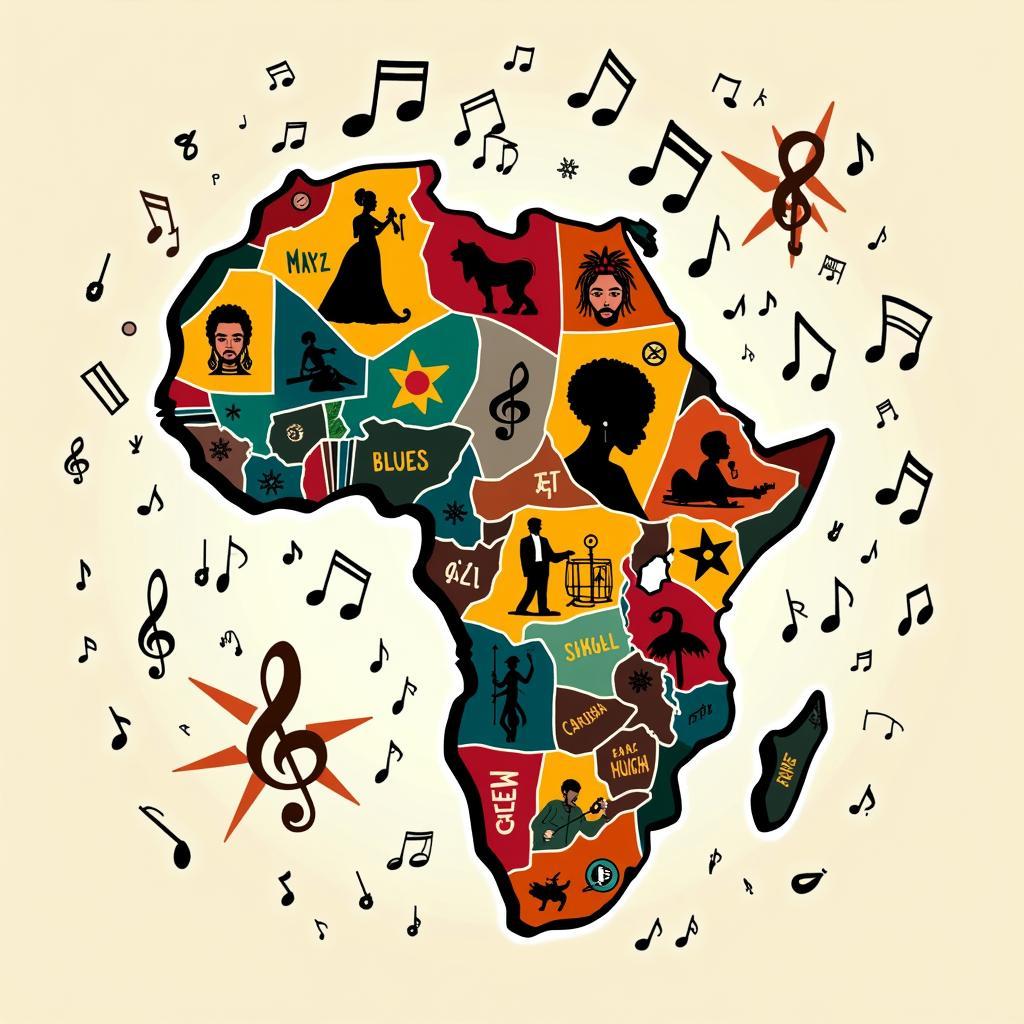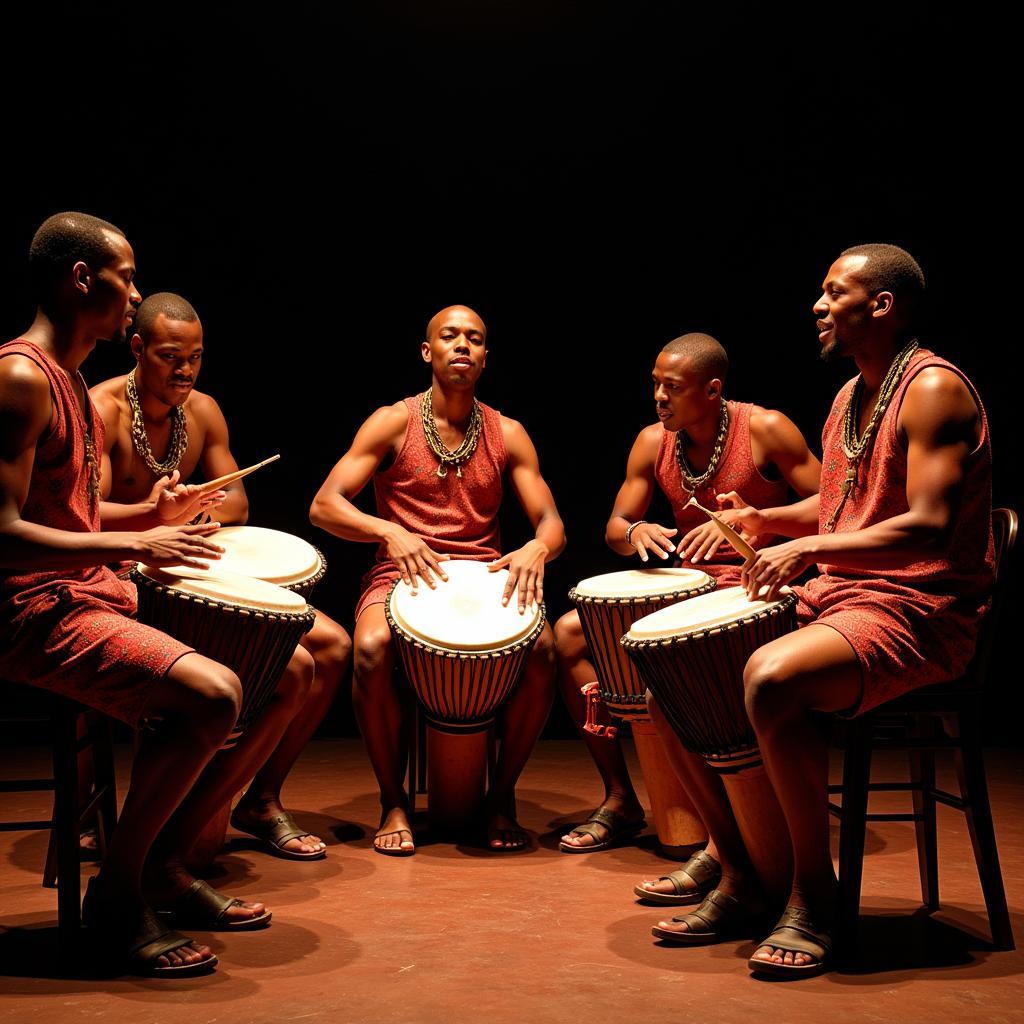Uncovering the Roots: Is There an “African American Shazam”?
The internet is buzzing with curiosity about “African American Shazam.” This intriguing phrase speaks to a desire to connect with cultural roots through music. While there isn’t one specific app called “African American Shazam,” the quest to discover the origins of Black music, particularly within the African diaspora, is a rich and rewarding journey.
Beyond the Algorithm: Understanding the Search for “African American Shazam”
The beauty of music lies in its ability to transcend borders and connect us through shared emotions and experiences. For many African Americans, the search for musical roots is a deeply personal journey of self-discovery. It’s about understanding the rich tapestry of influences that have shaped Black music genres like jazz, blues, soul, funk, R&B, and hip-hop.
 Music Map of the African Diaspora
Music Map of the African Diaspora
This yearning for connection explains the search for an “african american shazam.” People are seeking a tool that can analyze a song and instantly pinpoint its African origins, revealing the threads that connect contemporary Black music to its ancestral homeland.
The Challenges and Complexities of Tracing Black Music Origins
Tracing the roots of Black music is a complex endeavor for several reasons:
- Forced Migration and the Transatlantic Slave Trade: The transatlantic slave trade tragically displaced millions of Africans, severing their ties to their homelands and cultures. This forced migration led to a blending of musical traditions, making it challenging to isolate individual strands.
- Oral Traditions and Limited Documentation: Much of African music was passed down orally through generations, with limited written documentation. This lack of written records makes it difficult to trace lineage and evolution definitively.
- Cultural Fusion and Evolution: Music is a living, breathing art form. As enslaved Africans interacted with other cultures in the Americas, their music absorbed new influences, leading to the development of distinct genres.
Bridging the Gap: Resources for Exploring Black Music Roots
While a single “african american shazam” might not exist, a wealth of resources are available to aid in the exploration of Black music heritage:
- Digital Music Archives: Online archives like the Smithsonian Folkways Recordings and the Association for Cultural Equity house vast collections of traditional African and diaspora music.
- Ethnomusicology Research: Ethnomusicology, the study of music in culture, offers valuable insights into the origins and evolution of Black musical traditions. University departments and research institutions often publish scholarly articles and books on this topic.
- Documentaries and Films: Powerful documentaries like “The Black Roots of American Music” and “When the Levees Broke: A Requiem in Four Acts” explore the history and impact of Black music.
 Traditional African Drumming Circle
Traditional African Drumming Circle
The Power of Music as a Connecting Force
The search for “african american shazam” highlights the profound desire to connect with heritage through music. While pinpointing specific origins can be challenging, the journey itself is enriching. By exploring the vast and vibrant world of African and diaspora music, we gain a deeper appreciation for the resilience, creativity, and enduring legacy of Black culture.


